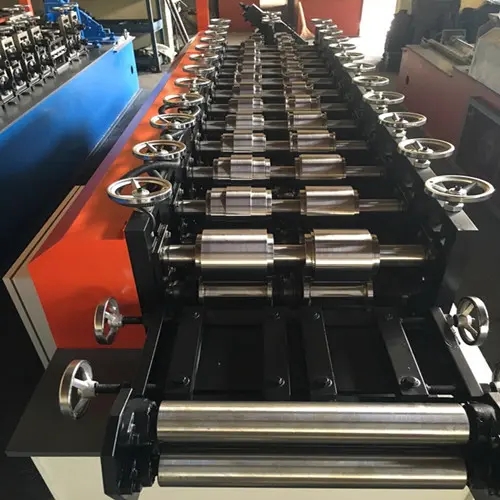
The High-Frequency Pipe Making Machine Revolutionizing Pipe Production
In the ever-evolving landscape of industrial manufacturing, the high-frequency pipe making machine has emerged as a game-changer. This innovative technology is not only enhancing the speed and efficiency of pipe production but is also setting new standards in quality and versatility. This article delves into the workings, advantages, applications, and future potential of high-frequency pipe making machines.
Understanding High-Frequency Pipe Making Machines
High-frequency pipe making machines are specialized equipment designed for the fabrication of pipes from various materials, most notably steel. The process employs high-frequency induction heating to forge and weld metal sheets into tubes. This method significantly accelerates production rates by allowing continuous processing, which is essential for meeting the increasing demand for pipes across various sectors.
The machine operates by first feeding flat metal sheets into the system. These sheets are then shaped into a cylindrical form as they pass through a series of rollers. High-frequency induction coils generate heat, which is concentrated along the edges of the sheets, bringing them to a temperature where they can be welded together. This continuous welding technique not only ensures strong joints but also minimizes the need for additional seams.
Advantages of High-Frequency Pipe Making Machines
1. Speed and Efficiency One of the most significant benefits of high-frequency pipe making machines is their ability to produce pipes at remarkable speeds. Traditional methods, which may involve several stages and extensive manual labor, are significantly outpaced by the streamlined process of high-frequency welding.
2. Quality Assurance The precision of the high-frequency welding process leads to superior quality pipes. The induction heating creates a strong bond without compromising the material’s integrity, resulting in pipes that can withstand high pressure and varying environmental conditions.
3. Versatility These machines can be utilized to produce a diverse range of pipe sizes and thicknesses. Manufacturers can easily adjust the machine's settings to cater to specific requirements, making it adaptable to various industries such as construction, automotive, and energy.

4. Cost-Effectiveness While the initial investment in a high-frequency pipe making machine may be substantial, the long-term savings in labor, reduced waste, and higher production rates make it a cost-effective choice for manufacturers.
5. Eco-Friendliness The efficiency of the process translates into less energy consumption compared to traditional methods, contributing to a reduced carbon footprint. Furthermore, the minimal waste generated during production enhances its sustainability.
Applications in Various Industries
High-frequency pipe making machines are utilized across several industries, each benefiting from the unique characteristics of the pipes produced. In the construction industry, these pipes are essential for structural applications, plumbing, and HVAC systems. In the automotive sector, they play a crucial role in manufacturing exhaust systems, fuel lines, and various other components. Moreover, the energy sector relies on high-quality pipes for oil and gas transportation, as well as in renewable energy applications like wind turbines and solar panel support structures.
Future Potential
As technology continues to advance, the future of high-frequency pipe making machines looks promising. Innovations in automation, artificial intelligence, and machine learning could further enhance their efficiency and quality. For example, integrating smart sensors can provide real-time data on production quality, enabling manufacturers to make instant adjustments and maintain high standards.
Moreover, the ongoing push for sustainable practices in manufacturing is likely to drive the adoption of high-frequency welding technologies, as companies seek to reduce waste and energy consumption.
Conclusion
High-frequency pipe making machines represent a significant advancement in the field of pipe production, offering unparalleled speed, quality, and adaptability. Their applications across various industries underscore their importance in modern manufacturing. As technology progresses and sustainability becomes increasingly paramount, these machines will undoubtedly play a vital role in shaping the future of industrial piping systems. The combination of efficiency, quality, and versatility makes high-frequency pipe making machines an indispensable asset for manufacturers aiming to thrive in a competitive marketplace.